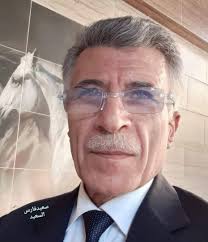
بقلم: سعيد فارس السعيد
في ظل التحديات السياسية والاجتماعية التي تواجه منطقتنا، تتكرر المحاولات لاختطاف بعض المكونات الوطنية وزجّها في محاور أو مشاريع تخدم أجندات خارجية. هذه المخاطر لا تهدد فقط استقلال القرار الوطني، بل تفتح أيضًا باب الانقسام الداخلي وتقوّض فكرة الدولة المدنية الموحدة.
المكون الوطني خط أحمر
لن نرضى بأن يُختطف المكوّن الوطني العربي السوري الشيعي من قبل أية قوى طائفية أو أجنبية، ولن نسمح بأن يُسخّر لأهداف محاور أو مخططات تخدم مصالح خارجية على حساب وحدتنا الوطنية وسيادتنا.
إننا نؤكد تمسكنا بالثوابت الوطنية، وحقنا في العيش الكريم بعيدًا عن أي استغلال أو تآمر يمس كرامة أبنائنا ومستقبل وطننا.
تمثيل المكونات الوطنية…
بين الشراكة والاحتكار
من أخطر ما يهدد فكرة الدولة المدنية هو اختزال التمثيل السياسي أو الاجتماعي لأي مكوّن وطني في رجل دين أو مرجعية دينية واحدة. هذا النمط لا يعكس حقيقة التنوع داخل المكوّن، بل يحصره في خطاب ضيق، ويحوّله إلى أداة اصطفاف طائفي، بدل أن يكون عنصرًا من عناصر الوحدة الوطنية.
إن قوة المكوّنات الوطنية لا تأتي من احتكار التمثيل، بل من تعدد الأصوات والرؤى التي تعبّر عنها. فحين يشارك رجال الدين في تمثيل مجتمعاتهم إلى جانب النخب المدنية والفكرية والسياسية، يتحول الحضور الديني من أداة إقصاء إلى عنصر إثراء، وتصبح الهوية الوطنية أوسع من أي انتماء فرعي.
خطر احتكار التمثيل باسم الدين
عندما نقبل أن يكون رجل الدين وحده ممثلًا حصريًا لأي مكوّن، فإننا نساهم في تكريس الطائفية وإقصاء العديد من أفراده. ويزداد الخطر حين يستمد بعض رجال الدين نفوذهم من التحكم بالموارد المالية وتوزيع المساعدات، ما يمنحهم سلطة إضافية تعزز احتكارهم للتمثيل وتعيق الشراكة الحقيقية.
نحو دولة مدنية موحدة
الدولة المدنية الحقيقية تُبنى على قاعدة أن المواطنة هي الرابط الأعلى، وأن جميع المواطنين شركاء متساوون في صنع القرار ورسم المستقبل، بصرف النظر عن مكانتهم الدينية أو الاجتماعية. أما احتكار الصوت أو القرار من قبل فئة أو فرد باسم الدين، فهو مسار يفتح الباب أمام الانقسام والتبعية، ويقوّض أسس السيادة والوحدة.
الخاتمة
إن حماية المكونات الوطنية من الاختطاف والاحتكار مسؤولية جماعية تبدأ برفض كل أشكال التمثيل الحصري، وتعزيز قيم الشراكة والمواطنة المتساوية، حتى يبقى وطننا متماسكًا وقادرًا على مواجهة جميع التحديات.
سعيد فارس السعيد
كاتب وباحث مستقل في قضايا الأمن الاجتماعي والوطني
وصوت من أجل شرق يولد من تحت الرماد وليس من تحت الركام
---
English Version
Protecting National Components from Hijacking and Monopolization
By: Saeed Fares Al-Saeed
Introduction
Amid the political and social challenges facing our region, there have been repeated attempts to hijack national components and drag them into axes or projects that serve foreign agendas. This danger not only threatens the independence of national decision-making but also opens the door to internal division and undermines the very idea of a unified civil state.
The National Component Is a Red Line
We will not allow the Syrian Arab Shiite national component to be hijacked by any sectarian or foreign forces, nor to be exploited for agendas or schemes that serve external interests at the expense of our national unity and sovereignty.
We reaffirm our adherence to national principles and our right to live in dignity, free from any exploitation or conspiracy that undermines the dignity of our people and the future of our homeland.
Representing National Components… Between Partnership and Monopolization
One of the most dangerous threats to the concept of a civil state is reducing the political or social representation of any national component to a single religious leader or authority. Such an approach does not reflect the true diversity within the component but confines it to a narrow discourse, turning it into a tool for sectarian alignment rather than a factor of national unity.
The strength of national components lies not in monopolizing representation, but in the multiplicity of voices and visions that speak for them. When religious leaders participate in representing their communities alongside civil, intellectual, and political elites, the religious presence becomes an enriching element rather than an excluding one, and the national identity becomes broader than any sub-identity.
The Danger of Monopolizing Representation in the Name of Religion
When we accept that a religious leader alone is the sole representative of any component, we directly contribute to entrenching sectarianism and excluding many of its members. The danger intensifies when some religious leaders derive their influence from controlling financial resources and distributing aid, granting them additional authority that reinforces their monopoly over representation and blocks the path to genuine partnership.
Towards a Unified Civil State
A true civil state is built on the principle that citizenship is the highest bond, and that all citizens are equal partners in decision-making and shaping the future, regardless of their religious or social standing. Monopolizing the voice or decision by a faction or individual in the name of religion opens the door to division and dependency, undermining the foundations of sovereignty and unity.
Conclusion
Protecting national components from hijacking and monopolization is a collective responsibility. It begins with rejecting all forms of exclusive representation and promoting the values of partnership and equal citizenship so that our homeland remains cohesive and capable of confronting all dangers.
Saeed Fares Al-Saeed
Independent Writer and Researcher in Social and National Security Issues
A voice for an East born from under the ashes, not from under the rubble
---